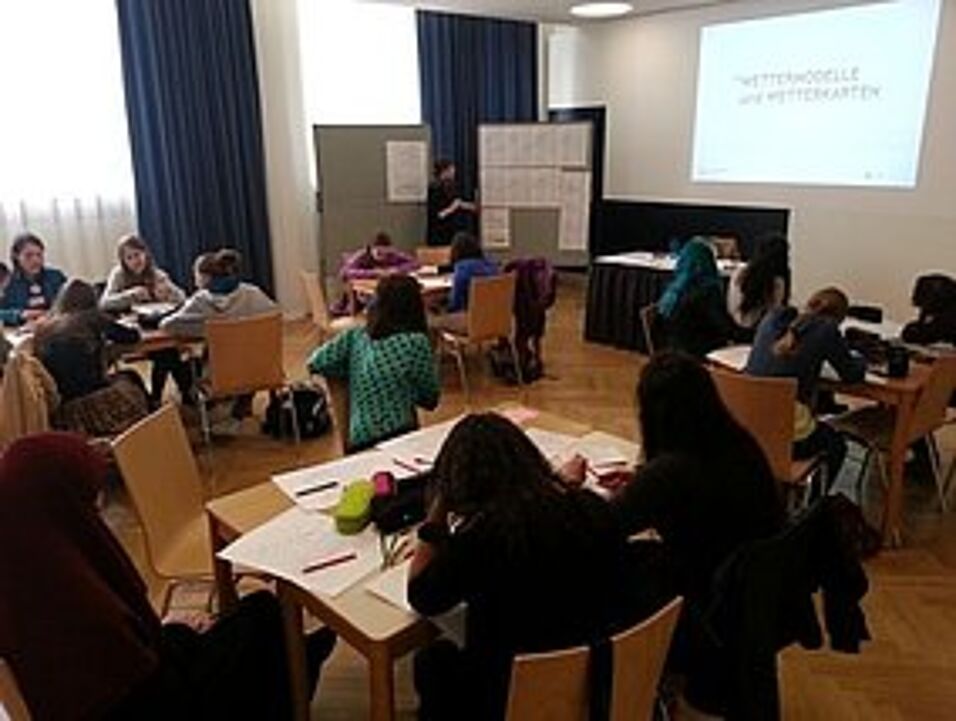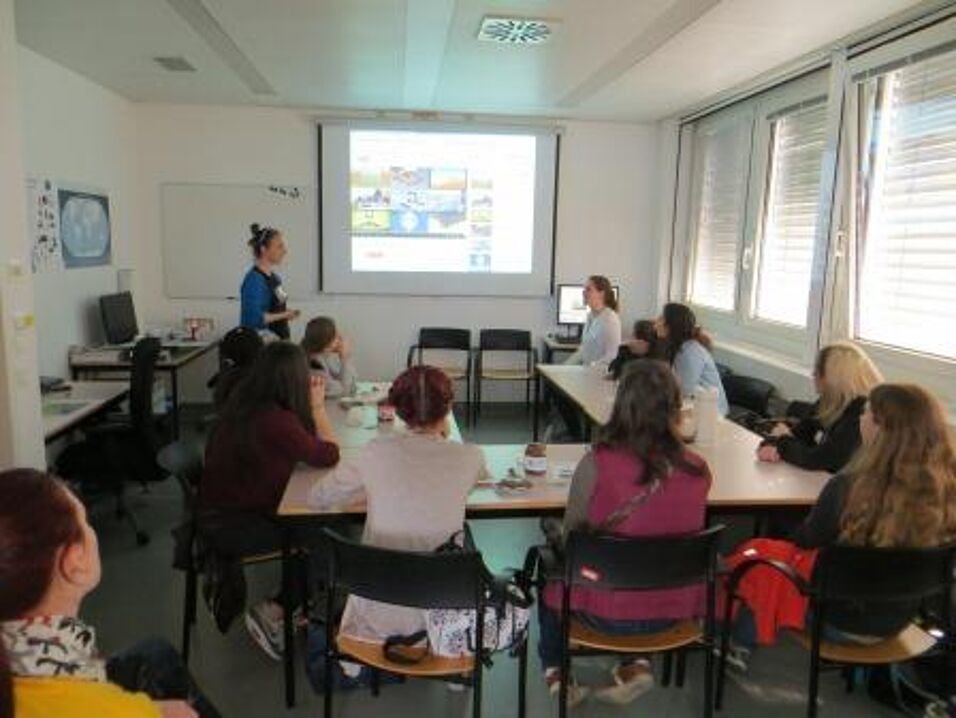Meteorology Workshop
With 18 motivated young women from diverse backgrounds, the areas of activity that are expected from a meteorologist: from predictions and report writing to the weather and climate modeling, were briefly discussed. After that they could act on its own; they deposed a SYNOP (synoptic observation = Weather Report). Equipped with a single weather station and a decision tree for cloud observations they acted as weather observers in the courtyard of the University of Vienna. Observations of temperature, barometric pressure, dew point and wind speed were recorded and their variations were discussed. The clouds were classified as far as visible and a symbol selected and registered. After the trip to the outside a weather map was analyzed by each participant and the rainfall areas on the analyzed day in Europe were localized. The workshop about the work of a meteorologist was ended by a brief weather meeting and the statement on how a prediction is created
Mathematics / Earthquake Workshop
A group of 9 young ladies was taught how to work with mathematical methods in earthquake science. Maria-Theresia Apoloner and Sofi Esterhazy provided the participants with an understanding of mathematics and geophysics in an lifely manner. In the beginning, they presented the girls their personal and very different ways into the field of seismology. Then there was a brief introduction about the different characteristics of seismic events and the theory of plate tectonics. The latter was modeled analogously in a practical exercise in a culinary fashion. After an insight into the mathematical modeling of the propagation of seismic waves the knowledge was reinforced by practical exercises where they built up all together a seismological station. Finally, we have shown how to read the first arrivals of P- and S- wave of a seismic signal from a seismogram, and localized the corresponding earthquakes on a map by ruler and compass.


